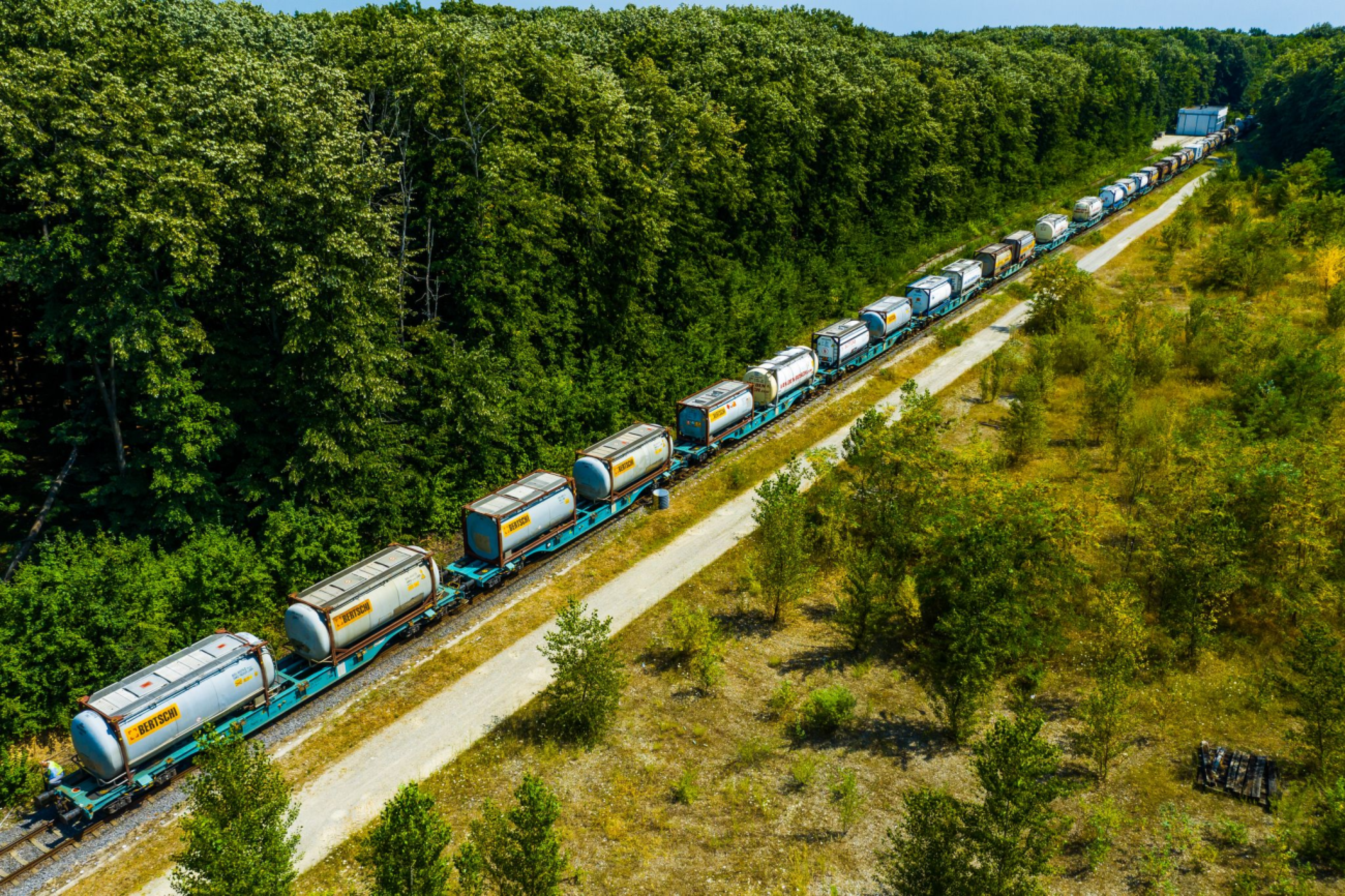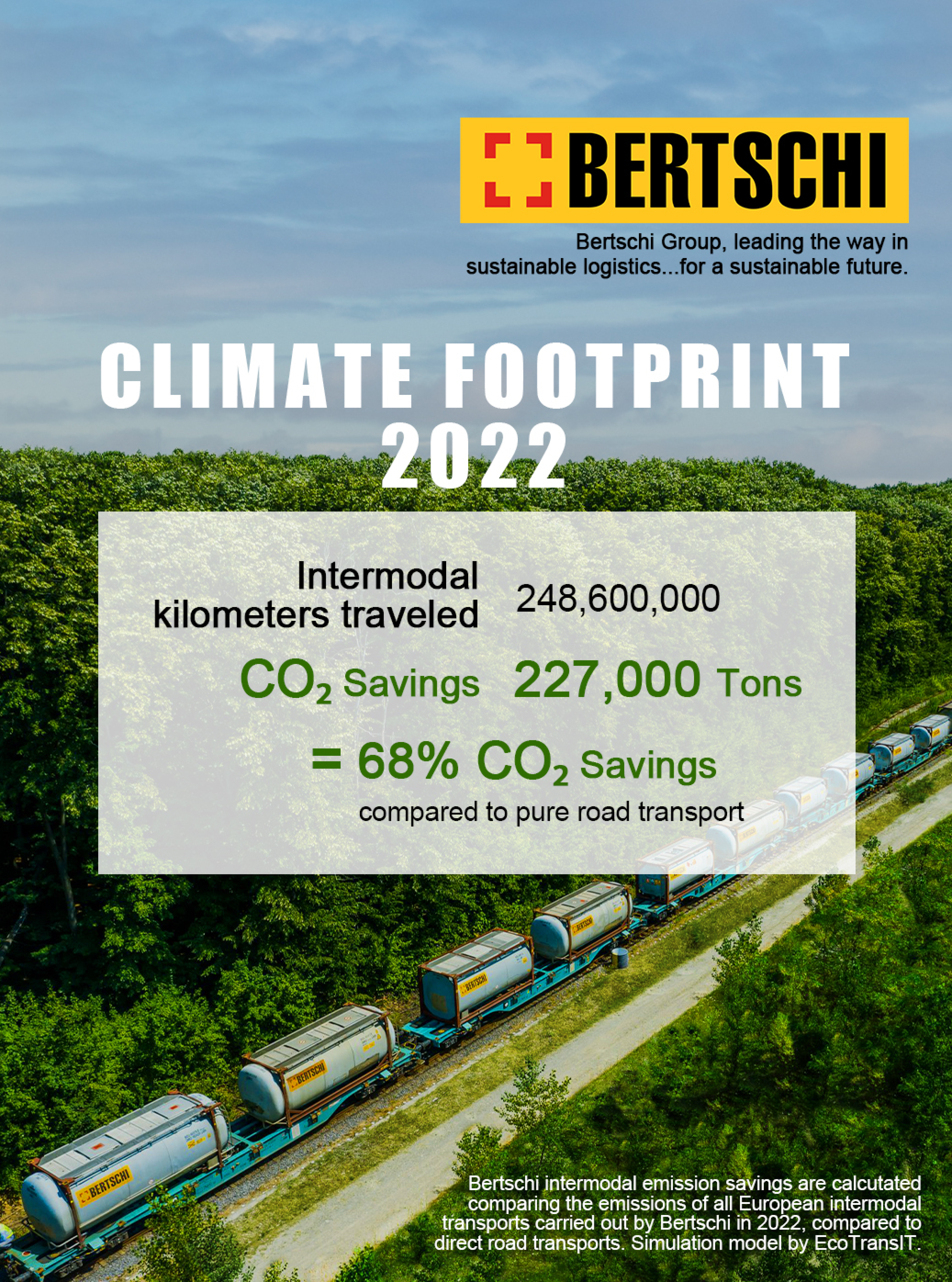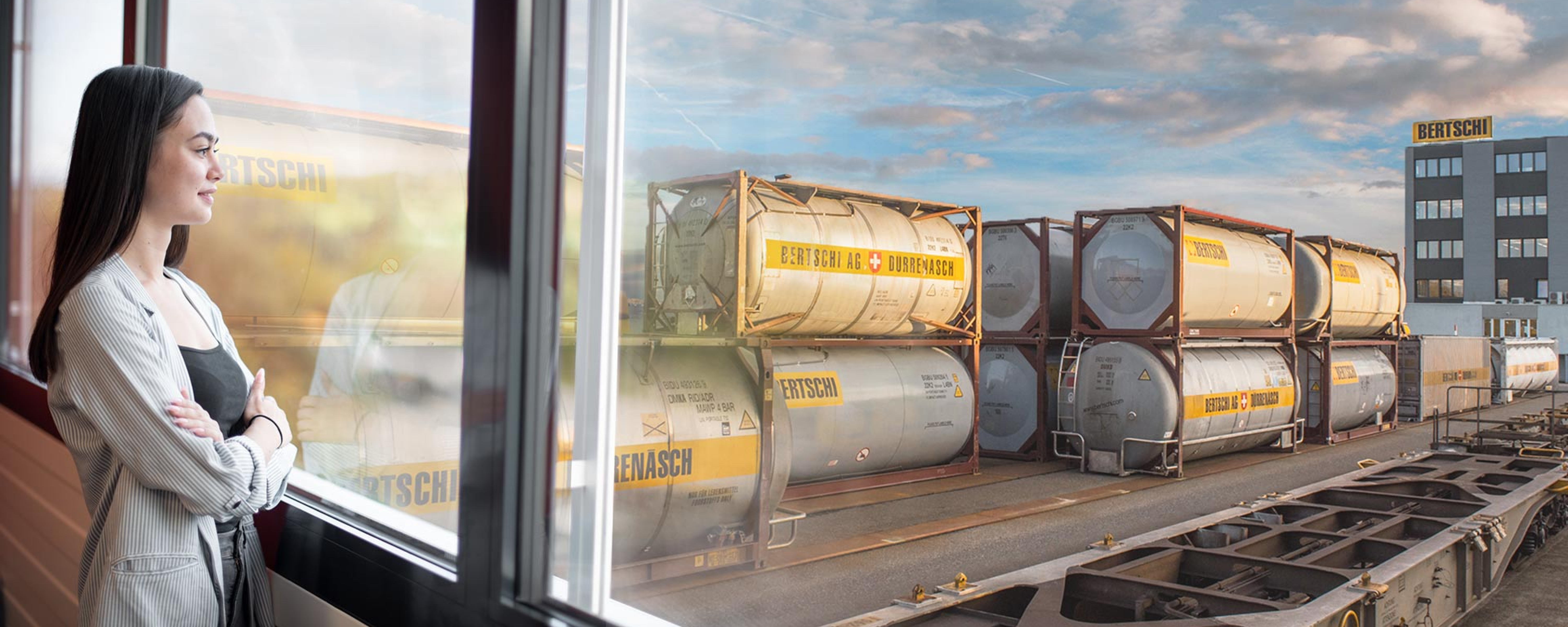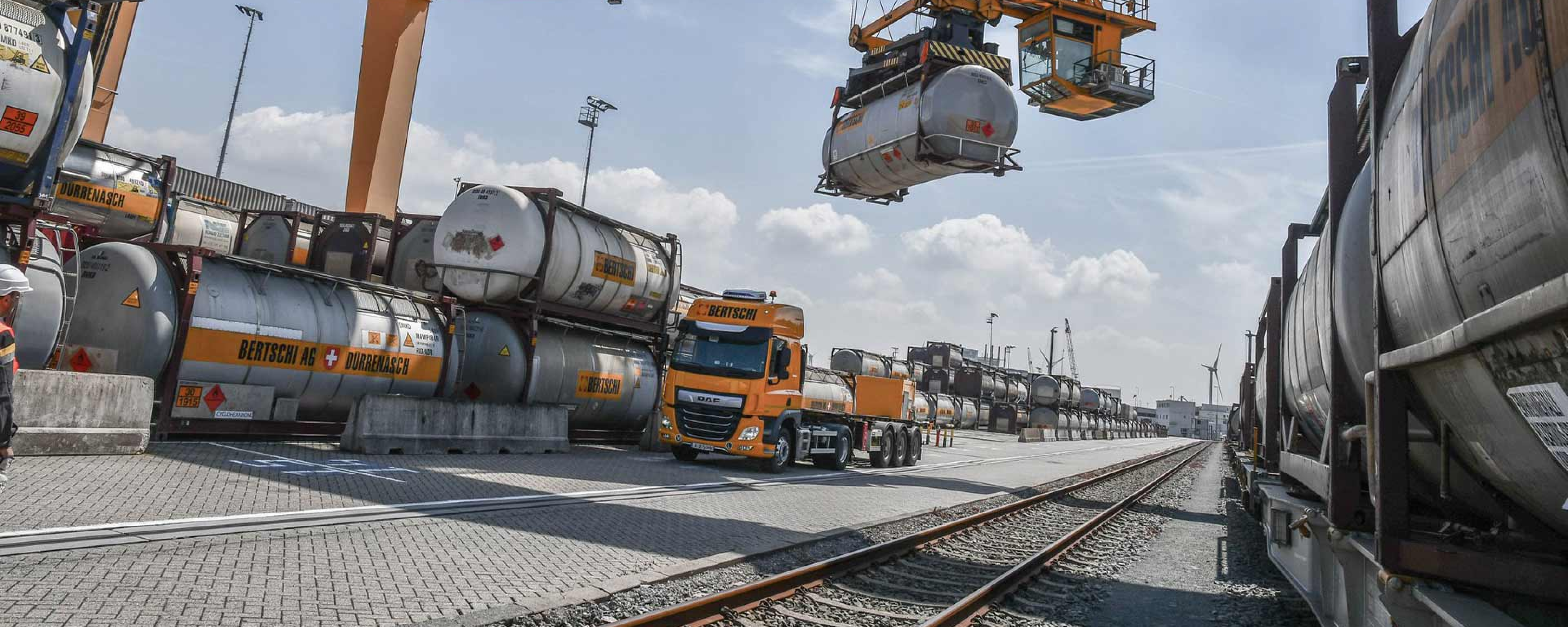Bertschi's 68% Reduction in CO2 Emissions: The Power of Intermodal Transportation

As the global community becomes more aware of the impact of climate change, businesses are taking steps to reduce their carbon footprint and promote sustainability. Bertschi is leading the way in sustainable logistics with our commitment to using intermodal transportation in our supply chain.

Bertschi’s climate footprint for 2022 includes 248,600,000 INTERMODAL kilometers traveled. This means that compared to if the same distance was traveled using pure road transport, we have saved a whopping 68% of CO2 emissions. Intermodal logistics involves combining different modes of transportation such as rail, road, and sea to optimize efficiency, reduce costs, and minimize environmental impact.
Intermodal logistics is an essential part of sustainable supply chains, and our commitment to it reflects our responsibility as a business to protect the environment. By using intermodal transportation, we can reduce the number of trucks on the road, which reduces traffic congestion and air pollution. It also enables us to choose the most efficient mode of transportation for each leg of the journey, resulting in fewer emissions and lower fuel consumption.
We invite our customers to prioritize intermodal supply chains in their operations as well. By doing so, they can reduce their carbon footprint and make a significant contribution towards a sustainable future. We remain committed to sustainable logistics, and our use of intermodal transportation is just one example of our efforts to create a better world for future generations.







